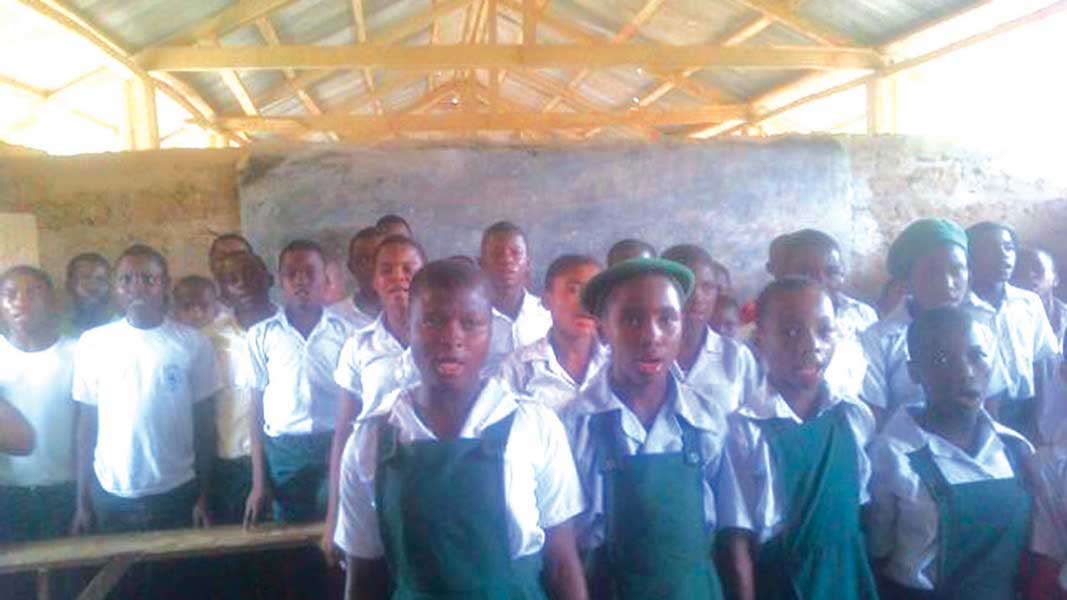The United Nations Children’s Fund has disclosed that over 60 percent of classrooms of public Junior Secondary School in Borno, Kano, Kaduna and Kebbi have no teaching materials.
Chief of Education of UNICEF Nigeria, Saadhna Panday-Soobrayan , disclosed this at a 2-day National Conference on the Learning Crisis in Nigeria on Wednesday.
Advertisement
Panday-Soobrayan also disclosed that the learning gaps persist in the country which is most severe in the Northern part of the country, adding that only 10 percent of 7 to 14 year olds in North West and 12 percent in the North East demonstrate foundational literacy.
“Nigeria’s learning crisis begins in Children’s earliest years as only half of Nigeria’s children are developmentally on track in early childhood. And only 60 per cent participate in organised pre-primary learning,” she said.
UNICEF’s Chief of Education, also lamented that the quality of teachers in the country is limited by poor pedagogical skills and lack of teaching and learning materials, disclosing that only 84 percent of Primary School teachers and 59 of JSS teachers are qualified.
She disclosed that the teacher workforce in the country suffers from severe shortfalls, adding that Nigeria has a shortfall of approximately 195,000 teachers at the primary level.
Advertisement
She also stated that under-investment in quality education in Nigeria has affected effective action, saying that domestic education financing is chronologically low.
Panday-Soobrayan noted that the aforementioned educational deprivation and learning poverty has stalled progress on achieving all other goals, noting that Sub-Saharan Africa has achieved just 41 percent of SDG 4 commitment.
She stated that a structured pedagogy will improve learning outcomes including scripted lesson plans, teacher support, training and monitoring.
“Structured pedagogy programmes have the largest and most consistent positive average effects on learning outcomes. Pedagogical interventions that tailor teaching to students’ skills are consistently recommended,” she stated
Also speaking, UNICEF Nigeria Representative, Cristian Munduate, emphasized the need for targeted efforts to address the learning loss in the country, especially in sub-Saharan Africa.
Advertisement
She noted that the pandemic worsened the existing education crisis in the region, with many children losing access to education due to the closure of schools.
“For Nigeria, convening a conference on the learning crisis is opportune as the government defines its priorities for the education sector in the new Ministerial Strategic Plan. Just as Nigeria has galvanized significant support around the out-of-school problem, so too must it give attention to the learning crisis that is fueling the out-of-school problem in Nigeria,” she said.
Also speaking during the event, Chairman of the Nigeria Governors Forum and Governor of Kwara State, Abdulrazaq AbdulRahman, called for a state of emergency in the education sector specifically targeting the basic level.
The chairman who was represented by the Vice Chairman of the Forum and Oyo State Governor, Seyi Makinde however stated that there was need for immediate action to bridge the learning gaps observed at the elementary school level.
“You must provide the resources and look at all the issues that are working against achieving sustainable growth. It is one thing to declare a state of emergency and another thing to put all the resources and elements that will allow us achieve that. I support putting in place the resources, even if you don’t declare a state of emergency to allow us to move faster in that sector,” he said.



